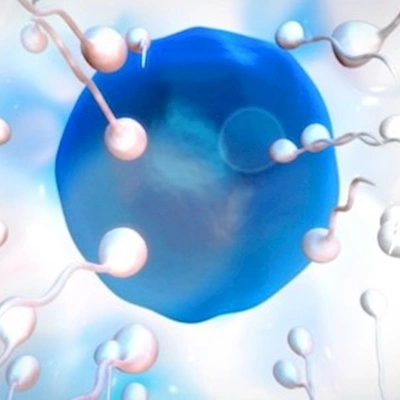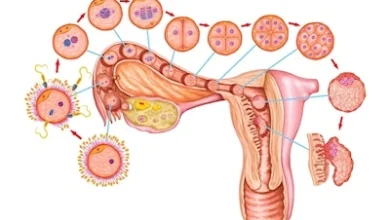Factors Causing Trouble Conceiving With A Man

If the couples cannot achieve pregnancy despite regular sexual intercourse for 1 year if the woman’s age is under 35, and for 6 months if the woman is over 35, infertility can be mentioned, and we recommend that they be evaluated by a specialist who deals with reproduction. In approximately one third of couples, difficulties in conceiving can be detected due to masculine factors.
Situations That May Create Difficulty in Conceiving Pregnancy Due to Factors Related to the Man
* In the presence of disturbance and loss of function in the hormonal glands called hypothalamus and pituitary in the brain and stimulate testosterone and sperm production from the testicles by secreting GnRH, FSH and LH,
* In the presence of a disease that may cause problems in testosterone or sperm production in the testicles,
* In the presence of obstruction, congenital absence or a history of operation such as vasectomy, in the ducts that the sperm will travel until it is expelled after production in the testicles, problems in ejecting the sperm and difficulties in getting pregnant may occur as a result of previous infections or in the presence of sexual dysfunction.
As a result of the evaluation of the man;
– Low sperm count (oligospermia) and/or low motility (asthenospermia)
– Absence of sperm in the semen (azoospermia),
-Sexual dysfunction,
Problems such as retrograde ejaculation may be detected due to previous surgeries or diabetes.
Evaluation of the Man
First, a detailed history should be taken, physical examination should be performed, and sperm analysis should be planned.
- Within the scope of the story;
Puberty history, frequency of shaving,
History of previous infection, disease and surgery,
Drug (chemotherapy, steroid use, anabolic drugs), alcohol and cigarette use status,
Work environment, occupation (in terms of exposure to extreme heat or toxic substances),
Men should be examined in detail in terms of frequency of sexual intercourse, presence of sexual reluctance (low libido).
- Within the scope of physical examination;
When necessary, evaluation can be made in terms of excess weight, lack of hair growth, anatomical difference in terms of external genitalia, testis and penis size, which may be an indication of hormonal disorder.
- Sperm analysis;
An evaluation should be made in terms of parameters such as semen volume, sperm count, motility and leukocyte count with sperm analysis performed during a period of 2-6 days of sexual abstinence. Preferably, the semen sample should be produced in the clinic where the analysis will take place. If an abnormal result is observed, it should be repeated at least 1 week apart. The normal reference ranges for sperm analysis according to the recently accepted criteria of the World Health Organization (WHO);
- Volume:> 1.5 ml
- Sperm count: 15 Million/ml
- Total sperm count: 39 Million/ml
- Morphology: 4% normal
- Total motile sperm rate: 40%
- Fast motile sperm rate: It should be 32%.
In cases with severe oligospermia or complete absence of sperm, namely azoospermia, hormonal evaluation (FSH, LH, total testosterone, prolactin) and chromosome analysis should be performed. In addition to the absence of sperm, evaluation should be made for the presence of Y chromosome microdeletion. In patients with very low semen volume and no sperm in the semen, evaluation for obstructive azoospermia and, if necessary, analysis for cystic fibrosis gene mutation (CFTR mutation) may also be recommended.
We do not recommend performing sperm DNA damage testing. Moreover, it is not recommended to be done in the American Reproductive Association (ASRM) Guidelines. Because the presence of DNA damage does not prevent spontaneous conception, but it is also not a threat to the healthy course of pregnancy.
Treatment of Male Infertility
First of all, avoidance of alcohol and smoking, regular exercise and a balanced diet should be recommended. Evidence that the use of antioxidants and vitamins is beneficial is rather scanty. It should also be recommended to avoid being in very hot environments such as saunas and not to wear tight trousers.
Only 2-5% of patients have problems with the hypothalamus or pituitary gland. In this case, testosterone and sperm production from the testicles can be achieved by replacing the missing stimuli with the use of hCG to provide the missing LH hormone activity and the use of FSH-containing drugs for the FSH effect. Thus, if sufficient number of sperm can be reached , vaccination and IVF treatment options can be offered to the patient spontaneously, and below a certain number of sperm values, and the need for Surgical Sperm Retrieval is eliminated. For more detailed information on this subject, you can read my article on Male Infertility-Azospermia .
Although varicocele, that is, the presence of enlargement of the testicular veins, can be seen in some men with deterioration in sperm parameters, it is not an absolute cause of infertility. The spouses of some men with varicocele can get pregnant spontaneously. At the same time, varicocele operation does not always contribute positively to pregnancy. Moreover, even in men with very low sperm counts, IVF treatment can be offered as an option instead of surgery. For this reason, we do not recommend an operation for every man with varicocele.
In case of congenital absence or obstruction in the sperm carrier channels, pregnancy can be achieved by obtaining the sperm by pulling the sperm from the channels with a syringe within the scope of in vitro fertilization treatment. For more detailed information on this subject, you can read my article on Male Infertility-Azospermia .
However, except for these few cases due to hormonal deficiency, there is no medical treatment option to treat and correct low sperm count and motility. In case of mild sperm deficiency, vaccination treatment may be an option, and in the presence of severe sperm count and motility problems, in vitro fertilization treatment will be recommended. You can find more detailed information about IVF treatment in my article What is IVF Treatment?
IVF Treatment in the Presence of Low Sperm Count and Motility Due to Males
In the presence of sperm in the semen, we almost always prefer to use semen sperm in IVF treatment. Because the rates of fertilization with semen sperm are higher than surgical sperm retrieval. Since we use the microinjection (ICSI) method, a sperm is injected into each egg, and therefore the presence of sperm as much as the number of mature eggs collected is sufficient. However, if there is no motile sperm in the semen or there are not as many sperm as the number of mature eggs, surgical sperm retrieval may be considered. For more detailed information on this subject, you can read my article on Male Infertility-Azospermia .




